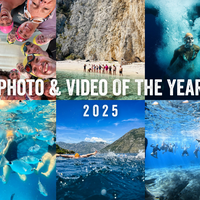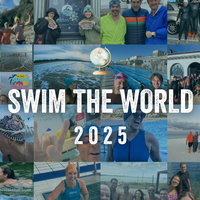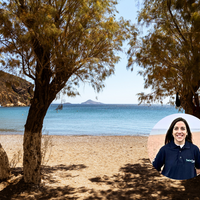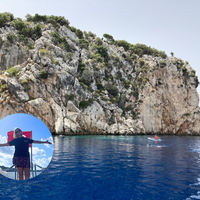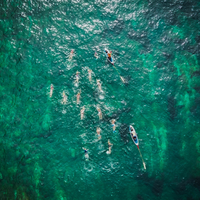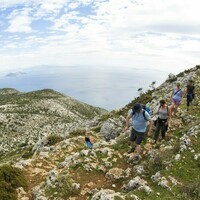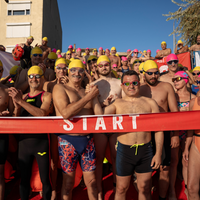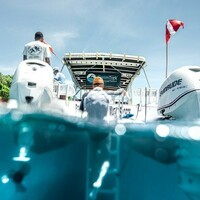Here are some of the most common swim coaching inquires our London swimming coach Dan Abel has received:
- I want to swim faster and more efficiently
- I have trouble with my breathing
- I am training for an open water swim or triathlon and need help
- I have had shoulder trouble/injury
If you have any one or multiple of these questions on the tip of your tongue you can see you are not alone. Here are some swim tips * to help you on your way:
Swimming Training Tips for 2013
- Swimming fitness and swimming technique will help you swim more efficiently and faster. Don’t neglect one for the other.
- Get some help; did you learn to drive a car without instruction? I am guessing not. It makes sense to get some help with swimming lessons and swimming drills.
- Find a coach you can relate to, one that is happy to answer your questions. Never be afraid to ask questions.
- Swim technique such as breathing and stroke drills should first be conducted in a swim pool.
- Don’t fall into the trap of trying to work on skills while swimming your complete stroke. To work on breathing first use the side of the pool, a kick board or even some flipper assistance.
- Find a group to swim with; swimming is usually more fun and productive in a group.
- Don’t simply swim endless laps, this will limit your results. Learn how to swim properly, get a coach to provide you with some structured swimming lessons.
- Swimming only in a pool is not ideal for triathlon and open water swim training. Search for an outdoor swimming pool or open water swim location near you. The open water swim environment is very different to the pool.
- Shoulder pain is most often caused by excessive or incorrect loading either from increasing your distance too quickly, from errors in your technique or a combination of both. If you develop shoulder pain don’t push through it, you may develop a more serious problem. Get diagnosed, get treatment and rest it. Diagnosis should always include some training and technique analysis.
In my opinion there is very little justification for a beginner swimmer to have hand paddles as swim equipment. The risks out way the positives. If you must, do so only after receiving instruction and in a structured swim environment.
Finally when searching for the perfect technique it is always helpful to look at Olympic swimmers online, they really know what they are doing and we can learn a lot. But you should also realise there is no one perfect technique. We are all different physiologically and therefore what is perfect technique for one person may not work for someone else.
There are of course ‘the essentials’ that must be present to swim faster and more efficiently. To get the best combination for you – get some help and don’t wait until the week prior to your event to ask.
Happy and safe swimming in 2013.

